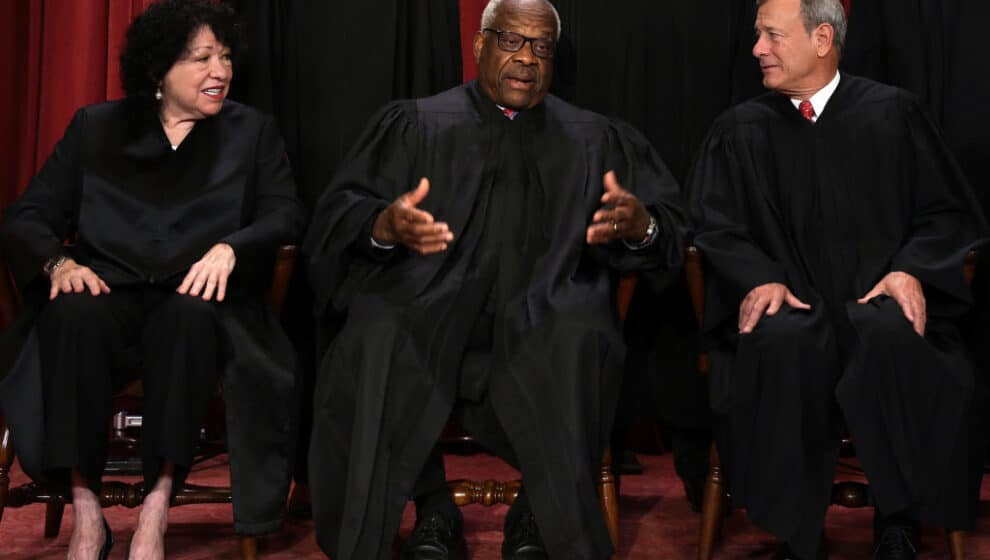The Supreme Court has begun its oral arguments on Section 230 protections, creating confusion in the court as the justices struggled with the implications of the technology.
Key Details
- The Supreme Court heard arguments today in Gonzalez v. Google regarding a challenge to Section 230 protections, which Google is defending to avoid facing unnecessary liability for comments made on their social media platform.
- Section 230 of the Communications Decency Act of 1996 gives social-media networks limited liability for the content spread on social media. However, a family is suing for the right to seek damages after YouTube videos allegedly spurred a 2015 ISIS attack.
- This morning’s opening oral arguments were met by general confusion from several of the nine supreme court justices, who repeatedly had to ask for clarification on internet-related topics, Bloomberg reports.
- Almost everyone on the court openly expressed confusion, with Justice Samual Alito reportedly saying, “I’m completely confused” at the prosecution’s argument, and Justice Ketanji Brown Jackson similarly agreeing, “I’m thoroughly confused.”
- Justice Elena Kagan went as far as to joke that the nine justices were “not the nine greatest experts on the internet,” receiving a laugh from the crowd.
Why It’s Important
The upcoming ruling on Gonzalez v. Google could change the internet forever—putting more pressure on social media networks to censor material more heavily, lest it unintentionally makes the companies liable.
The justices debated the wording of Section 230 during the oral arguments, discussing the limitations of the law. While there is no indication of how the court will rule yet, Justice Clarence Thomas did go as far as to speculate that Google’s algorithms acting neutrally is not an argument against the social-media network—meaning YouTube hasn’t violated the Anti-Terrorism Act.
The Supreme Court may simply default to Google’s side, given the unusual attempt to use anti-terrorism arguments as a broad precedent about the limitations of Section 230 protections, given the implications it could have for other kinds of content and free speech protections.
Backing Up A Bit
Justice Thomas’s comments could suggest that Google has the advantage in this particular case. He is a notable critic of Section 230, yet seemed to default against some of the arguments against it, arguing that holding YouTube accountable for its algorithms was questionable. “I don’t understand how a neutral suggestion about something that you’ve expressed an interest in is aiding and abetting,” NBC News speculates.
Justice Kagan similarly responded to a comment about Section 230 after the plaintiffs’ lawyer Eric Schnapper argued that the law doesn’t protect YouTube thumbnails or recommended videos. “Algorithms are endemic to the internet. Does your position send us down the road such as 230 really can’t mean anything at all?” she asks.
